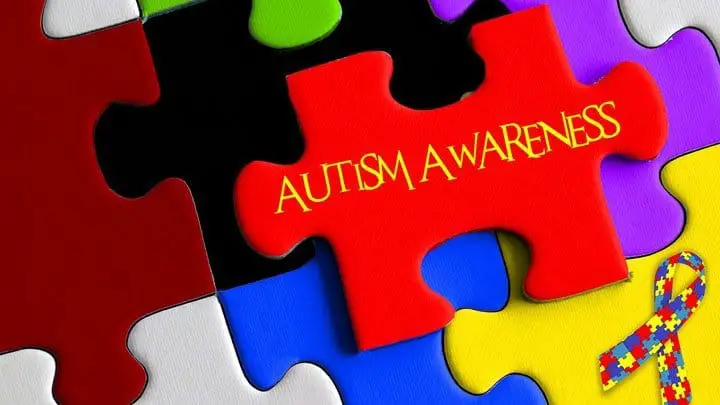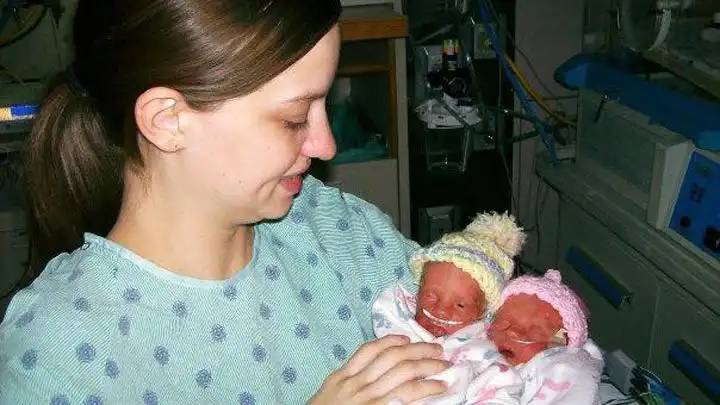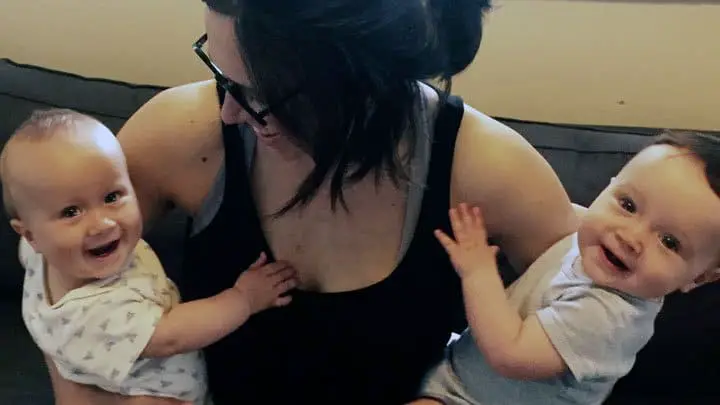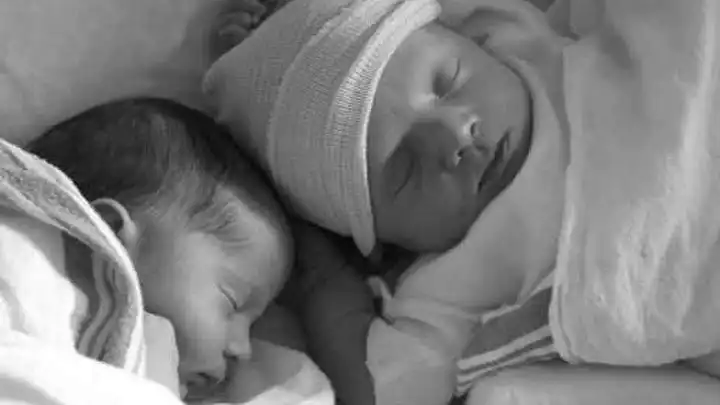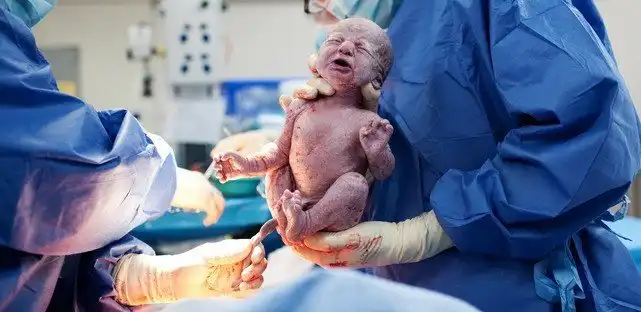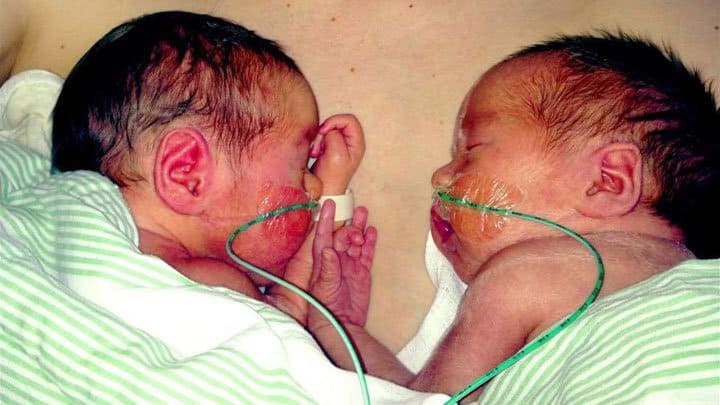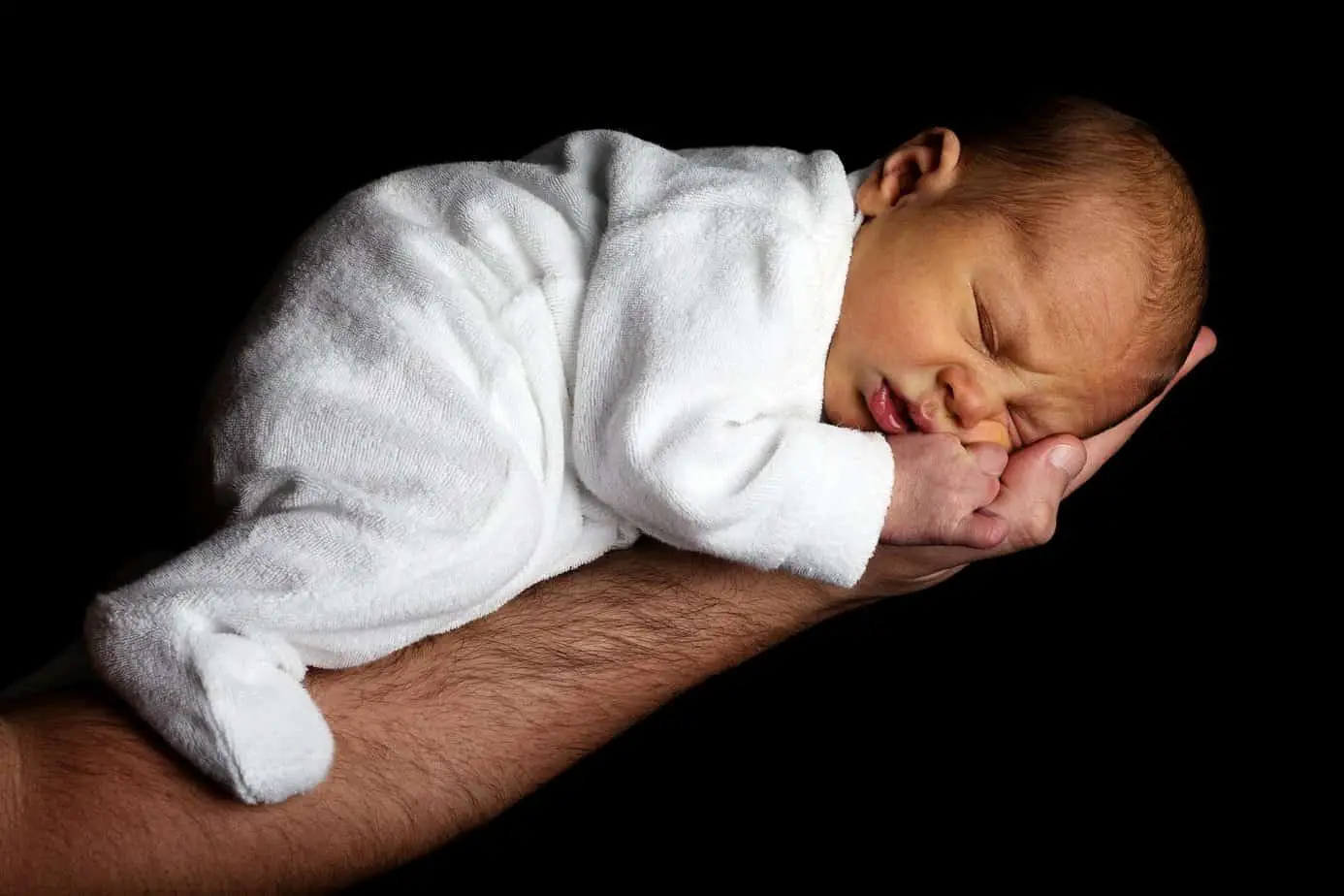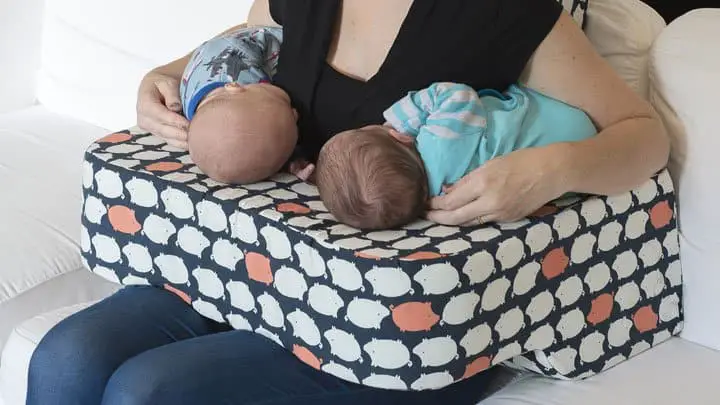Premature Twins: Week by Week Twin Gestation Overview
Once you’ve found out that you’re pregnant with twins, you might start worrying about giving birth prematurely. The risk of giving birth to premature twins is higher than if you were pregnant with a singleton. Nevertheless, about half of women pregnant with twins give birth at term. It means that they give birth when they’re at least 37+0 weeks pregnant. This group is not expected to experience any complications related to prematurity. The other half gives birth prematurely.
Premature twins survival rate
Today most children born very preterm – from 28 weeks – survive in high-income countries. In low-income countries about half of babies born at or below 32 weeks die. WHO estimates that preterm birth was responsible for nearly 1 million deaths in 2015. Three-quarters of them could be saved with current, cost-effective intervention.
How will my premature twins do?
How your babies will do depend on the course of your pregnancy and on how early your babies are born. It also depends on the individual babies and the care that they receive. Being born prematurely means that there are some long term risks. There is a greater risk of being diagnosed with cerebral palsy, mental retardation, visual and hearing impairments and more subtle disorders of different central nervous system functions, such as language disorders, learning disabilities, attention deficit-hyperactivity disorders and behavioral problems. Consult your doctor or your Maternal-Fetal Medicine (MFM) specialist if you’re worried about giving birth to premature twins.
Premature twins week by week overview
 Twins born at 27 weeks
Twins born at 27 weeks
Twins born at 27 weeks are in the extremely preterm category. More than 90 percent of extremely preterm babies born in low-income countries die within the first few days of life. Less than 10 percent of extremely preterm babies die in high-income settings.
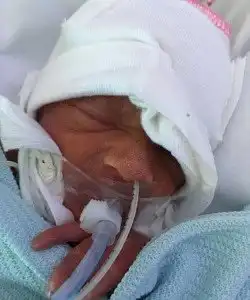 Twins born at 28 weeks
Twins born at 28 weeks
The vast majority of twins born at 28 weeks survive in high-income countries. But they are in for quite a long stay at the Neonatal Intensive Care Unit (NICU).
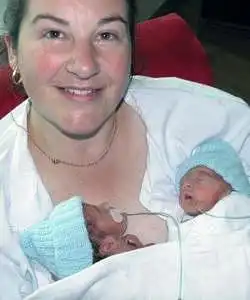 Twins born at 29 weeks
Twins born at 29 weeks
Twins born at 29 weeks require treatment with oxygen, surfactant and mechanical assistance to help them breathe. They’ll need help eating.
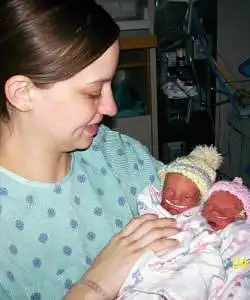 Twins born at 30 weeks
Twins born at 30 weeks
In low-income countries about half of babies born at or below 32 weeks die. Twins born at 30 weeks need to be born in a medical facility equipped to deal with preterm babies. Proper medical care is essential. Your babies will need help breathing as well as eating. The NICU staff will guide you on how to start breast- or bottle feeding once your babies have developed their sucking reflexes.
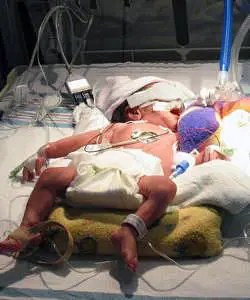 Twins born at 31 weeks
Twins born at 31 weeks
Twins born at 31 weeks will need help breathing and eating. It’s important that they gain weight and grow.
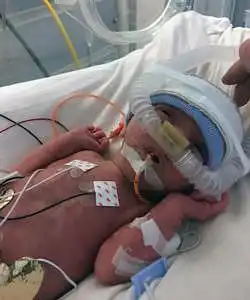 Twins born at 32 weeks
Twins born at 32 weeks
Twins born at 32 weeks are considered moderate to late preterm, which means that they’ve hit a major milestone. They’re no longer considered born very preterm.
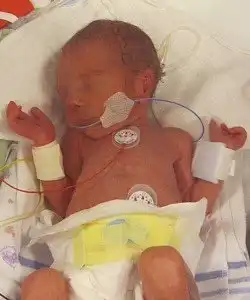 Twins born at 33 weeks
Twins born at 33 weeks
Your babies have come far, but they still need to grow and gain more weight. The far majority of babies born at 33 weeks will need help breathing.
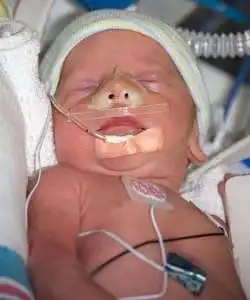 Twins born at 34 weeks
Twins born at 34 weeks
Twins born at 34 weeks will probably need help to learn to regulate temperature and master eating, and some will have breathing issues.
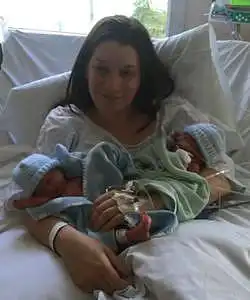 Twins born at 35 weeks
Twins born at 35 weeks
Twins born at 35 weeks may not need any medical treatment. They may be able to go straight to the maternity ward with you. In most cases they are now able to breathe by themselves.
 Twins born at 36 weeks
Twins born at 36 weeks
Most babies have mature lungs by now. This means that your babies won’t need special help breathing, if they’re born at 36 weeks. However, since babies develop at different rates, there are exceptions to this.
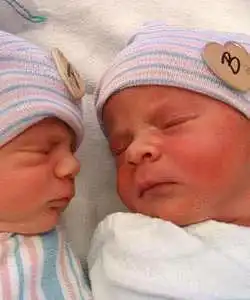 Twins born at 37 weeks
Twins born at 37 weeks
Even though your twins are in the moderate to late preterm category, it’s very likely that they won’t need medical treatment. They may very well be able to go straight to the maternity ward with you.
Premature twins & attachment
Studies have shown that parents are more likely to have a less secure attachment to babies born preterm compared to babies born at term. A twin study concluded that parents with premature twins face similar attachment issues. The study showed that both mom and dad have a less secure attachment to babies born prematurely. The study also showed that for fathers with preterm children less education and having babies with lower developmental scores were associated with lower attachment scores. Fathers seem to find the interaction with less developed children more difficult than with more developed children.
Premature twins, dad & the NICU
A PhD thesis from Denmark focused on how to be better at understanding and acknowledging the fathers of premature babies at the Neonatal Intensive Care Unit (NICU). Eight principles were developed. The principles focused on early involvement of dads by making sure that the dads were able to take part in the care of their premature babies as soon as they were born.
1. Early skin contact between father and child immediately after birth while the mom is being treated.
2. Planning of important events so fathers can take part. That could for instance be the transfer from the incubator or the first bath.
3. Fathers should be able to get information directly from the healthcare professionals.
4. Better planning so fathers can participate in conversations about the child’s development.
5. Financial advice and information about opportunities for leave.
6. Formation of birth groups for fathers.
7. The possibility that a family member or friend could help the parents in the Neonatal Intensive Care Unit (NICU).
8. Making it possible for older siblings to stay at the department.
